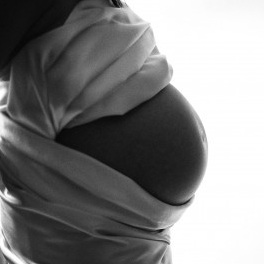
Symptoms of listeria can include chills, upset stomach, muscle aches, fever and diarrhea. If listeria spreads to the nervous system, other symptoms like convulsions, migraines, neck stiffness and loss of balance can also occur.
Listeria can be treated with antibiotics but, because the symptoms so closely resemble the flu, listeria illness is rarely detected in time. Another problem that arises in treating listeria illness is the long incubation time. Early onset of symptoms can occur about a week after exposure but incubation time can last up to four weeks – making it very difficult for those exposed to pinpoint the source of their illness.
It is the difficulty in detecting listeria that makes the illness so dangerous. In pregnant women, the risk is two-fold. Mother and infant are both at risk and even if mom is treated for listeria, the infant may still die or suffer from serious complications.
Pregnant women exposed to listeria are more likely to experience miscarriage, premature birth or stillbirth. Nearly 22% of all listeria cases in pregnant women result in stillbirth pregnancies. If the infant survives listeria exposure may have serious health complications at birth like paralysis, mental retardation, low birth weight or impairments to the brain, kidneys or heart. Complications can be caused by either the premature birth or the exposure to listeria itself. Infants born with listeriosis are also at risk for meningitis.
Listeria is generally associated with refrigerated pate and meat spreads, refrigerated smoked seafood, hot dogs, deli meats, lunch meats, unpasteurized milk and soft, unpasteurized cheeses. The general recommendation for avoiding contact with listeria is to avoid these foods completely. The most recent outbreak, however, has been tracked to cantaloupe and possibly romaine lettuce.
Because the current outbreak is tracked to fresh produce, you will need to be more proactive about avoiding listeria. While the following precautions are proper cooking procedures, reviewing them can help remind you of their importance as well as why they are important.
Make sure that you practice proper hand washing before and after meal preparation. Wash all fruits and vegetables thoroughly before eating or using. Cut all fruits and vegetables before you cut meat products to avoid cross contamination and eat any leftovers quickly so they do not grow bacteria. You should also clean your refrigerator regularly to promote cooling efficiency. Bacteria growth is much slower at 37 degrees and under.
If you think you have been exposed to listeria, talk to your doctor immediately. Your doctor can perform a blood test to check for the bacteria in your blood stream. If it is found, your doctor will give you antibiotics. The sooner the condition is treated, the better your chances at avoiding any potential risks for you and your infant.
Related Articles:
- Should Pregnant Women Avoid NSAID Painkillers?
- Pioneering Treatment Saves Baby in the Womb
- Behavioral Disorders Linked to Extreme, Long-Term Morning Sickness in Recent Study






